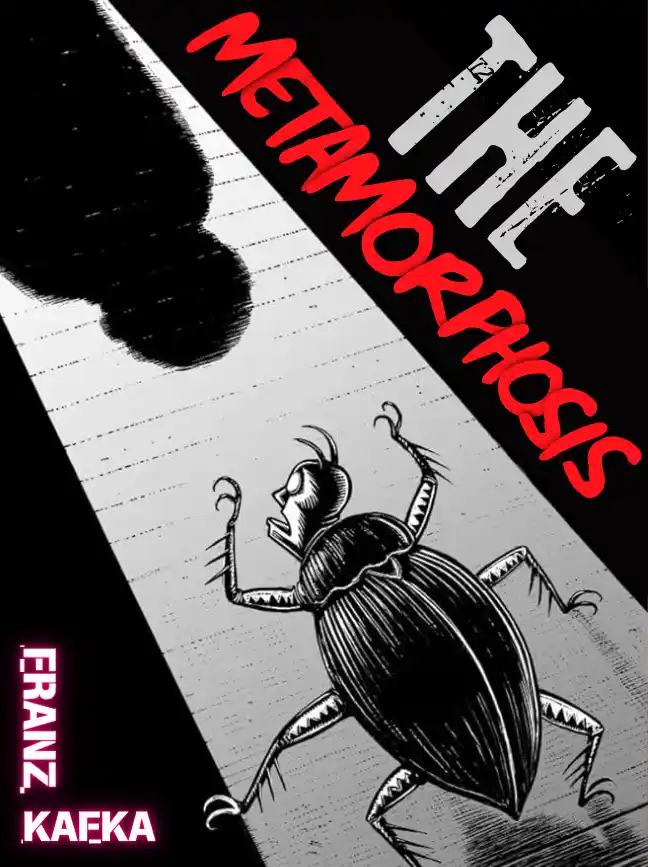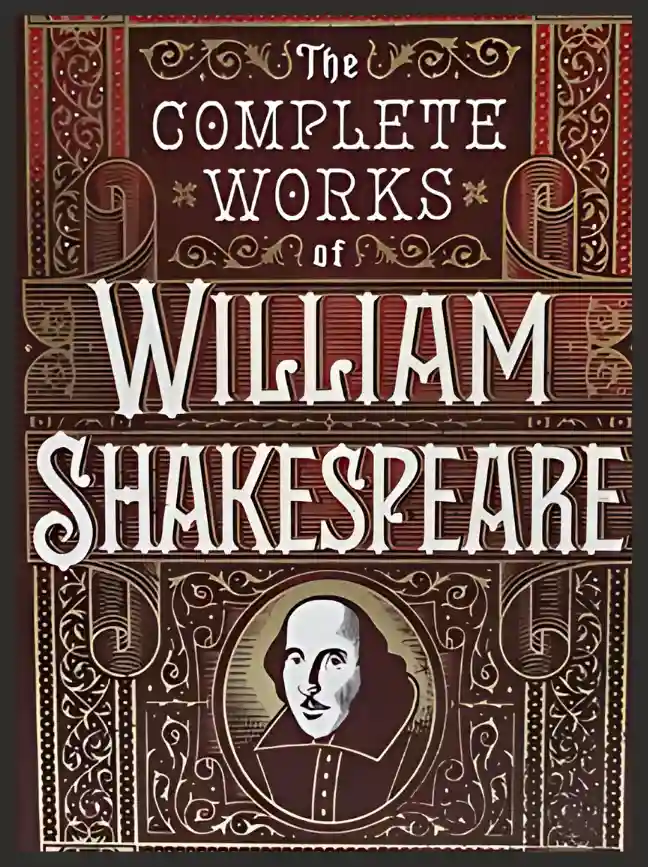Edric arched his neck, stared sideways at Stilgar with a look of apprehension. “People always expect the worst of the rich and powerful, Sire. It is said one can always tell an aristocrat: he reveals only those of his vices which will make him popular.”
A tremor passed across Stilgar’s face.
Paul looked up at the movement, sensing the thoughts and angers whispering in Stilgar’s mind. How dared this Guildsman talk thus to Muad’dib?
“You’re not joking, of course,” Paul said.
“Joking, Sire?”
Paul grew aware of dryness in his mouth. He felt that there were too many people in this room, that the air he breathed had passed through too many lungs. The taint of melange from Edric’s tank felt threatening.
“Who might my accomplices be in such a conspiracy?” Paul asked presently. “Do you nominate the Qizarate?”
Edric’s shrug stirred the orange gas around his head. He no longer appeared concerned by Stilgar, although the Fremen continued to glare at him.
“Are you suggesting that my missionaries of the Holy Orders, all of them, are preaching subtle falsehood?” Paul insisted.
“It could be a question of self-interest and sincerity,” Edric said.
Stilgar put a hand to the crysknife beneath his robe.
Paul shook his head, said: “Then you accuse me of insincerity.”
“I’m not sure that accuse is the proper word, Sire.”
The boldness of this creature! Paul thought. And he said: “Accused or not, you’re saying my bishops and I are no better than power-hungry brigands.”
“Power-hungry, Sire?” Again, Edric looked at Stilgar. “Power tends to isolate those who hold too much of it. Eventually, they lose touch with reality… and fall.”
“M’Lord,” Stilgar growled, “you’ve had men executed for less!”
“Men, yes,” Paul agreed. “But this is a Guild Ambassador.”
“He accuses you of an unholy fraud!” Stilgar said.
“His thinking interests me, Stil,” Paul said. “Contain your anger and remain alert.”
“As Muad’dib commands.”
“Tell me, Steersman,” Paul said, “how could we maintain this hypothetical fraud over such enormous distances of space and time without the means to watch every missionary, to examine every nuance in every Qizarate priory and temple?”
“What is time to you?” Edric asked.
Stilgar frowned in obvious puzzlement. And he thought: Muad’dib has often said he sees past the veils of time. What is the Guildsman really saying?
“Wouldn’t the structure of such a fraud begin to show holes?” Paul asked. “Significant disagreements, schisms… doubts, confessions of guilt – surely fraud could not suppress all these.”
“What religion and self-interest cannot hide, governments can,” Edric said.
“Are you testing the limits of my tolerance?” Paul asked.
“Do my arguments lack all merit?” Edric countered.
Does he want us to kill him? Paul wondered. Is Edric offering himself as a sacrifice?
“I prefer the cynical view,” Paul said, testing. “You obviously are trained in all the lying tricks of statecraft, the double meanings and the power words. Language is nothing more than a weapon to you and, thus, you test my armor.”
“The cynical view,” Edric said, a smile stretching his mouth. “And rulers are notoriously cynical where religions are concerned. Religion, too, is a weapon. What manner of weapon is religion when it becomes the government?”
Paul felt himself go inwardly still, a profound caution gripping him. To whom was Edric speaking? Damnable clever words, heavy with manipulation leverages – that undertone of comfortable humor, the unspoken air of shared Secrets: his manner said he and Paul were two sophisticates, men of a wider universe who understood things not granted common folk. With a feeling of shock, Paul realized that he had not been the main target for all this rhetoric. This affliction visited upon the court had been speaking for the benefit of others – speaking to Stilgar, to the household guards… perhaps even to the hulking aide.
“Religious mana was thrust upon me,” Paul said. “I did not seek it.” And he thought: There! Let this man-fish think himself victorious in our battle of words!
“Then why have you not disavowed it, Sire?” Edric asked.
“Because of my sister Alia,” Paul said, watching Edric carefully. “She is a goddess. Let me urge caution where Alia is concerned lest she strike you dead with her glance.”
A gloating smile began forming on Edric’s mouth, was replaced by a look of shock.
“I am deadly serious,” Paul said, watching the shock spread, seeing Stilgar nod.
In a bleak voice, Edric said: “You have mauled my confidence in you, Sire. And no doubt that was your intent.”
“Do not be certain you know my intent,” Paul said, and he signaled Stilgar that the audience was at an end.
To Stilgar’s questioning gesture asking if Edric were to be assassinated, Paul gave a negative hand-sign, amplified it with an imperative lest Stilgar take matters into his own hands.
Scytale, Edric’s aide, moved to the rear corner of the tank, nudged it toward the door. When he came opposite Paul, he stopped, turned that laughing gaze on Paul, said: “If my Lord permits?”
“Yes, what is it?” Paul asked, noting how Stilgar moved close in answer to the implied menace from this man.
“Some say,” Scytale said, “that people cling to Imperial leadership because space is infinite. They feel lonely without a unifying symbol. For a lonely people, the Emperor is a definite place. They can turn toward him and say: ‘See, there He is. He makes us one.’ Perhaps religion serves the same purpose, m’Lord.”
Scytale nodded pleasantly, gave Edric’s tank another nudge. They moved out of the salon, Edric supine in his tank, eyes closed. The Steersman appeared spent, all his nervous energies exhausted.
Paul stared after the shambling figure of Scytale, wondering at the man’s words. A peculiar fellow, that Scytale, he thought. While he was speaking, he had radiated a feeling of many people – as though his entire genetic inheritance lay exposed on his skin.
“That was odd,” Stilgar said, speaking to no one in particular.
Paul arose from the divan as a guard closed the door behind Edric and the escort.
“Odd,” Stilgar repeated. A vein throbbed at his temple.
Paul dimmed the salon’s lights, moved to a window which opened onto an angled cliff of his Keep. Lights glittered far below – pigmy movement. A work gang moved down there bringing giant plasmeld blocks to repair a facade of Alia’s temple which had been damaged by a freak twisting of a sandblast wind.
“That was a foolish thing, Usul, inviting that creature into these chambers,” Stilgar said.
Usul, Paul thought. My sietch name. Stilgar reminds me that he ruled over me once, that he saved me from the desert.
“Why did you do it?” Stilgar asked, speaking from close behind Paul.
“Data,” Paul said. “I need more data.”
“Is it not dangerous to try meeting this threat only as a mentat?”
That was perceptive, Paul thought.
Mentat computation remained finite. You couldn’t say something boundless within the boundaries of any language. Mentat abilities had their uses, though. He said as much now, daring Stilgar to refute his argument.
“There’s always something outside,” Stilgar said. “Some things best kept outside.”
“Or inside,” Paul said. And he accepted for a moment his own oracular/mentat summation. Outside, yes. And inside: here lay the true horror. How could he protect himself from himself? They certainly were setting him up to destroy himself, but this was a position hemmed in by even more terrifying possibilities.
His reverie was broken by the sound of rapid footsteps. The figure of Korba the Qizara surged through the doorway backlighted by the brilliant illumination in the hallways. He entered as though hurled by an unseen force and came to an almost immediate halt when he encountered the salon’s gloom. His hands appeared to be full of shigawire reels. They glittered in the light from the hall, strange little round jewels that were extinguished as a guardsman’s hand came into view, closed the door.
“Is that you, m’Lord?” Korba asked, peering into the shadows.
“What is it?” Stilgar asked.
“Stilgar?”
“We’re both here. What is it?”
“I’m disturbed by this reception for the Guildsman.”
“Disturbed?” Paul asked.
“The people say, m’Lord, that you honor our enemies.”
“Is that all?” Paul said. “Are those the reels I asked you to bring earlier?” He indicated the shigawire orbs in Korba’s hands.
“Reels… oh! Yes, m’Lord. These are the histories. Will you view them here?”
“I’ve viewed them. I want them for Stilgar here.”
“For me?” Stilgar asked. He felt resentment grow at what he interpreted as caprice on Paul’s part. Histories! Stilgar had sought out Paul earlier to discuss the logistics computations for the Zabulon conquest. The Guild Ambassador’s presence had intervened. And now – Korba with histories!
“How much history do you know?” Paul mused aloud, studying the shadowy figure beside him.
“M’Lord, I can name every world our people touched in their migrations. I know the reaches of Imperial…”
“The Golden Age of Earth, have you ever studied that?”
“Earth? Golden Age?” Stilgar was irritated and puzzled. Why would Paul wish to discuss myths from the dawn of time? Stilgar’s mind still felt crammed with Zabulon data – computations from the staff mentats: two hundred and five attack frigates with thirty legions, support battalions, pacification cadres, Qizarate missionaries… the food requirements (he had the figures right here in his mind) and melange… weaponry, uniforms, medals… urns for the ashes of the dead… the number of specialists – men to produce raw materials of propaganda, clerks, accountants… spies… and spies upon the spies…
“I brought the pulse-synchronizer attachment, also, m’Lord,” Korba ventured. He obviously sensed the tensions building between Paul and Stilgar and was disturbed by them.
Stilgar shook his head from side to side. Pulse-synchronizer? Why would Paul wish him to use a mnemonic flutter-system on a shigawire projector? Why scan for specific data in histories? This was mentat work! As usual, Stilgar found he couldn’t escape a deep suspicion at the thought of using a projector and attachments. The thing always immersed him in disturbing sensations, an overwhelming shower of data which his mind sorted out later, surprising him with information he had not known he possessed.
“Sire, I came with the Zabulon computations,” Stilgar said.
“Dehydrate the Zabulon computations!” Paul snapped, using the obscene Fremen term which meant that here was moisture no man could demean himself by touching.
“M’Lord!”
“Stilgar,” Paul said, “you urgently need a sense of balance which can come only from an understanding of long-term effects. What little information we have about the old times, the pittance of data which the Butlerians left us, Korba has brought it for you. Start with the Genghis Khan.”
“Ghengis… Khan? Was he of the Sardaukar, m’Lord?”
“Oh, long before that. He killed… perhaps four million.”
“He must’ve had formidable weaponry to kill that many, Sire. Lasbeams, perhaps, or…”
“He didn’t kill them himself, Stil. He killed the way I kill, by sending out his legions. There’s another emperor I want you to note in passing – a Hitler. He killed more than six million. Pretty good for those days.”
“Killed… by his legions?” Stilgar asked.
“Yes.”
“Not very impressive statistics, m’Lord.”
“Very good, Stil.” Paul glanced at the reels in Korba’s hands. Korba stood with them as though he wished he could drop them and flee. “Statistics: at a conservative estimate, I’ve killed sixty-one billion, sterilized ninety planets, completely demoralized five hundred others. I’ve wiped out the followers of forty religions which had existed since – ”
“Unbelievers!” Korba protested. “Unbelievers all!”
“No,” Paul said. “Believers.”
“My Liege makes a joke,” Korba said, voice trembling. “The Jihad has brought ten thousand worlds into the shining light of – ”
“Into the darkness,” Paul said. “We’ll be a hundred generations recovering from Muad’dib’s Jihad. I find it hard to imagine that anyone will ever surpass this.” A barking laugh erupted from his throat.
“What amuses Muad’dib?” Stilgar asked.
“I am not amused. I merely had a sudden vision of the Emperor Hitler saying something similar. No doubt he did.”
“No other ruler ever had your powers,” Korba argued. “Who would dare challenge you? Your legions control the known universe and all the – ”
“The legions control,” Paul said. “I wonder if they know this?”
“You control your legions, Sire,” Stilgar interrupted, and it was obvious from the tone of his voice that he suddenly felt his own position in that chain of command, his own hand guiding all that power.
Having set Stilgar’s thoughts in motion along the track he wanted, Paul turned his full attention to Korba, said: “Put the reels here on the divan.” As Korba obeyed, Paul said: “How goes the reception, Korba? Does my sister have everything well in hand?”
“Yes, m’Lord.” Korba’s tone was wary. “And Chani watches from the spy hole. She suspects there may be Sardaukar in the Guild entourage.”
“No doubt she’s correct,” Paul said. “The jackals gather.”
“Bannerjee,” Stilgar said, naming the chief of Paul’s Security detail, “was worried earlier that some of them might try to penetrate the private areas of the Keep.”
“Have they?”
“Not yet.”
“But there was some confusion in the formal gardens,” Korba said.
“What sort of confusion?” Stilgar demanded.
Paul nodded.
“Strangers coming and going,” Korba said, “trampling the plants, whispered conversations – I heard reports of some disturbing remarks.”
“Such as?” Paul asked.
“Is this the way our taxes are spent? I’m told the Ambassador himself asked that question.”
“I don’t find that surprising,” Paul said. “Were there many strangers in the gardens?”
“Dozens, m’Lord.”
“Bannerjee stationed picked troopers at the vulnerable doors, m’Lord,” Stilgar said. He turned as he spoke, allowing the salon’s single remaining light to illuminate half his face. The peculiar lighting, the face, all touched a node of memory in Paul’s mind – something from the desert. Paul didn’t bother bringing it to full recall, his attention being focused on how Stilgar had pulled back mentally. The Fremen had a tight-skinned forehead which mirrored almost every thought flickering across his mind. He was suspicious now, profoundly suspicious of his Emperor’s odd behavior.
“I don’t like the intrusion into the gardens,” Paul said. “Courtesy to guests is one thing, and the formal necessities of greeting an envoy, but this… ”
“I’ll see to removing them,” Korba said. “Immediately.”
“Wait!” Paul ordered as Korba started to turn.
In the abrupt stillness of the moment, Stilgar edged himself into a position where he could study Paul’s face. It was deftly done. Paul admired the way of it, an achievement devoid of any forwardness. It was a Fremen thing: slyness touched by respect for another’s privacy, a movement of necessity.
“What time is it?” Paul asked.
“Almost midnight, Sire,” Korba said.
“Korba, I think you may be my finest creation,” Paul said.
“Sire!” There was injury in Korba’s voice.
“Do you feel awe of me?” Paul asked.
“You are Paul-Muad’dib who was Usul in our sietch,” Korba said. “You know my devotion to – ”
“Have you ever felt like an apostle?” Paul asked.
Korba obviously misunderstood the words, but correctly interpreted the tone. “My Emperor knows I have a clean conscience!”
“Shai-hulud save us,” Paul murmured.








